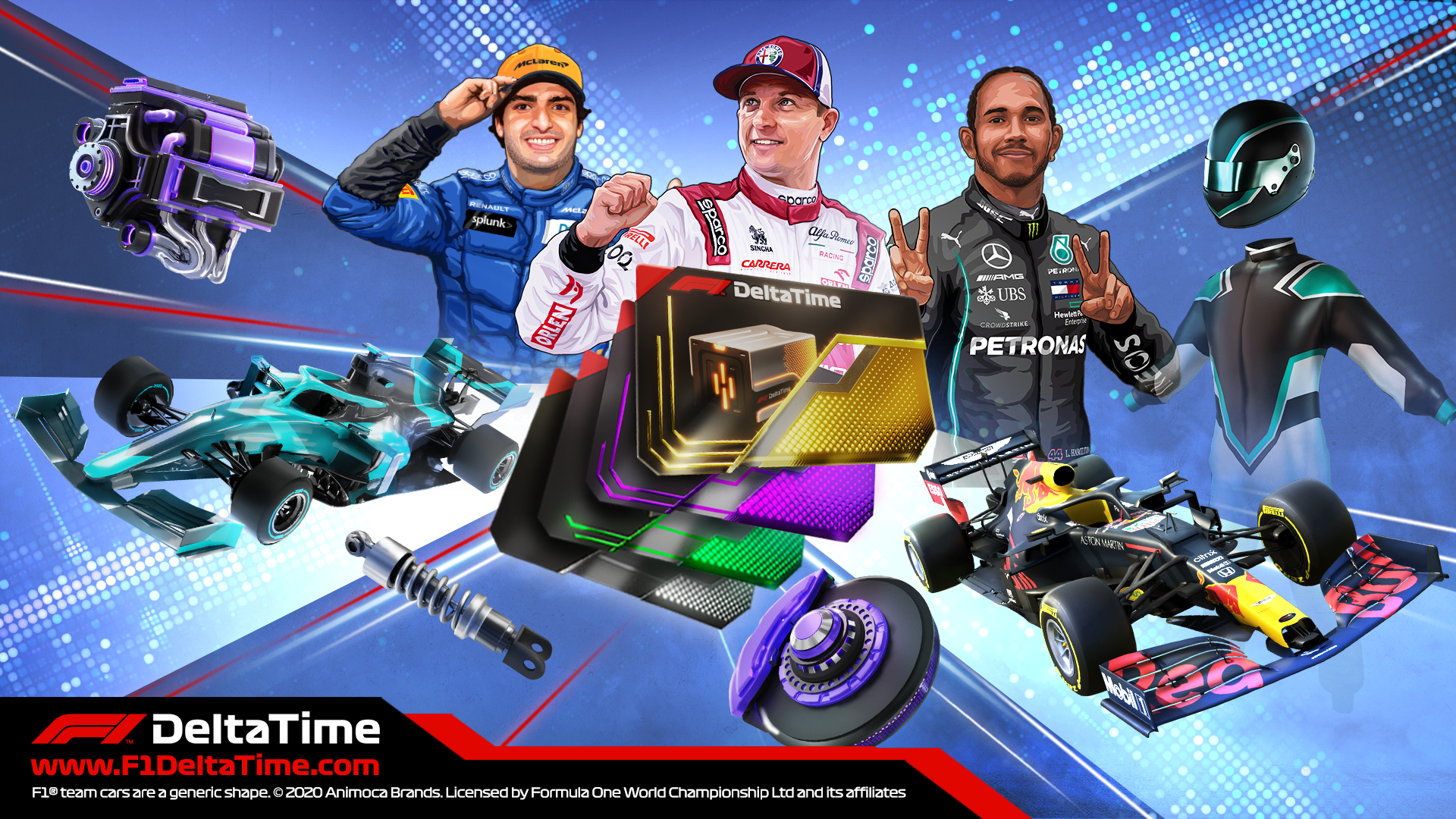
F1 Delta Time, which launched back in 2019 and was one of the first-ever licensed NFT games, has shut down. Animoca Brands announced the game's closure on March 15, just one day before the game spun off the track of success and ploughed into the barrier of oblivion.
For those who don't know about F1 Delta Time (which is probably most of you) the game was based upon the Ethereum currency, which players could convert into Animoca's REVV utility token to let them buy and trade NFT-based in-game items, such as cars, drivers and so on. While F1 Delta Time may be fairly obscure to most people, it was significant in how it "legitimised" the idea of NFT and play-to-earn gaming. Most notably, it saw the biggest-value sale of an NFT in 2019, with a jewel-encrusted car called the 1-1-1 going for an Ethereum value over $100,000.
The reason behind the shutdown is that this officially licensed Formula 1 game has lost its official license. This would be a major blow to any game, but especially so for one where the license is wrapped up in the sale of blockchain-based digital items. Animoca announced the shutdown via its REVV Motorsport Twitter account, stating. "It is with deep regret that we announce that F1 Delta Time will cease operations on 16 March 2022."
As for what's happened to all those precious NFTs, well, for all intents and purposes they no longer exist. It's worth noting the developers are attempting to compensate owners of those now-worthless NFTs with replacement tokens for one of the company's other blockchain-based racing games. Affected players can be compensated in various ways, including Replacement Cars, or a "Race Pass", or "Proxy Assets", which "will be used in the future to obtain NFTs to products across the REVV Motorsport ecosystem." In other words, you get a token for your token. A perfectly secure investment!
Indeed, while Animoca's gesture might seem like a company doing right by its customers, the whole point of an NFT is that it is supposed to convey security and permanence to a digital object. It's supposed to say "this thing exists with a uniquely attributable value". Hence, for Animoca to turn around and say to their customers "Oh no, these NFTs are entirely replaceable" makes a mockery of the whole endeavour. It's like a museum accidentally smashing their only Fabergé egg, only to immediately wheel out a second Fabergé egg from a warehouse filled to the roof with Fabergé eggs.
In short, it's a clear demonstration that NFTs are not anything like as future-proofed as their advocates claim, which has major implications for the perceived value of NFTs as a whole. Which would probably make it a bad time for the UK Government to decide to go all-in on the whole NFT craze.
The biggest gaming news, reviews and hardware deals
Keep up to date with the most important stories and the best deals, as picked by the PC Gamer team.
Rick has been fascinated by PC gaming since he was seven years old, when he used to sneak into his dad's home office for covert sessions of Doom. He grew up on a diet of similarly unsuitable games, with favourites including Quake, Thief, Half-Life and Deus Ex. Between 2013 and 2022, Rick was games editor of Custom PC magazine and associated website bit-tech.net. But he's always kept one foot in freelance games journalism, writing for publications like Edge, Eurogamer, the Guardian and, naturally, PC Gamer. While he'll play anything that can be controlled with a keyboard and mouse, he has a particular passion for first-person shooters and immersive sims.
